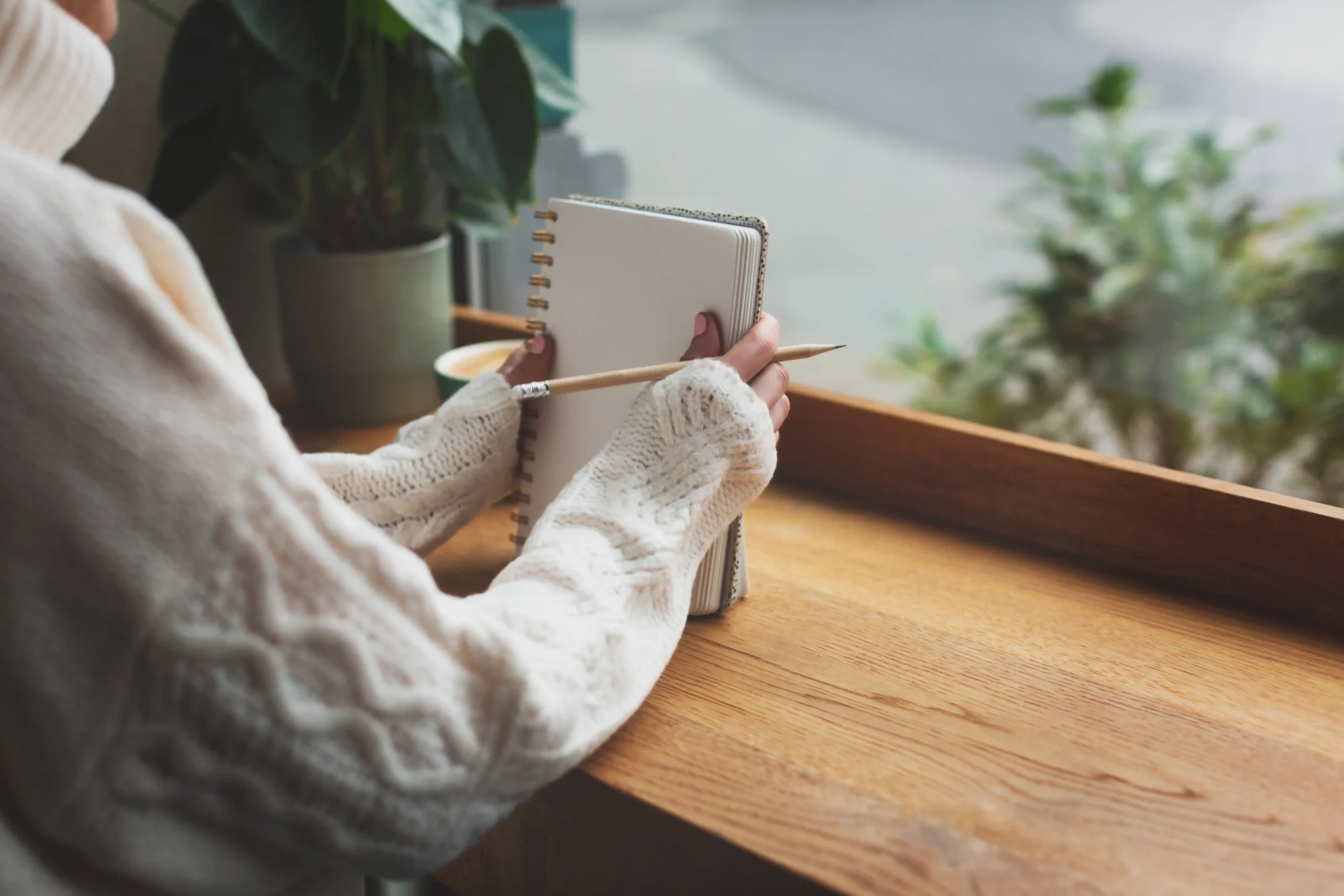It’s a simple yet profound tool that continues to transform lives—mine included.
Let me take you on a journey that starts in the dead of night, with a racing mind, a restless heart, and a deep-seated need to regain control. Picture this: it’s 3 a.m. You’re wide awake, tossing and turning, your thoughts in overdrive. There’s an unresolved argument from last week, a crucial decision you’ve been avoiding, and a persistent knot of anxiety in your chest. Does this sound familiar? It certainly was for me!
Seventeen years ago, during one of the darkest periods of my life. I was in the throes of a divorce, with an uncertain future looming ahead. Night after sleepless night, I would pace the floor until one pivotal moment when I picked up a notebook and started writing. It was a game-changer for me. What began as a desperate act to channel my swirling thoughts became a revelation.
The Science Behind Journalling
There’s real science behind journalling. Research shows that expressive writing helps manage anxiety, reduce stress, and improve sleep. By writing about traumatic events, we activate the brain’s emotional centre and pass those intense feelings to the rational part, helping us make sense of our emotions.
Even twenty minutes of expressive writing can lower blood pressure and improve liver function. Regular journalling elevates mood, boosts decision-making, and enhances emotional resilience. It’s like a mental workout, activating different parts of the brain and leaving us feeling more in tune with ourselves.
Busting the Myths of Journalling
One myth about journalling is that it requires lengthy, profound entries. Let me bust that myth right now. Journalling doesn’t have to be a marathon. Some of my most powerful moments came from what I call micro-journalling—a few sentences jotted down each day. Even a brief entry can help you process emotions, clear mental clutter, and show up for yourself consistently.
Another myth is that journalling must be polished or perfect. That is not true either, so forget about grammar or spelling. You can write about anything: a funny conversation, a delicious meal, or a random thought. This isn’t about publishing a memoir; it’s about creating a safe, judgement-free space to explore your thoughts. The key is consistency—showing up for yourself, day in and day out.
A Path to Clarity, Healing and Self-Discovery
Journalling became a way to map out my thoughts and emotions during turbulent times. It helped me confront shame, fear, and guilt while celebrating resilience and small victories in a totally private way. Practising gratitude taught me to appreciate the support around me, while future self-journalling reminded me that brighter days lay ahead.
Today, it remains a cornerstone of my recovery and self-care. It’s a practice I wholeheartedly recommend to anyone seeking clarity, balance, and healing.
Creating a Journalling Habit
Getting started is often the most challenging part, but it doesn’t have to be. Build a sustainable practice by:
- Start Small: Commit to five minutes daily and build up from there.
- Choose Your Time: Morning journalling can bring clarity for the day, while evening journalling is perfect for reflection.
- Create a Cozy Space: Find a quiet, comfortable spot where you can write without distractions.
- Keep It Simple: A basic notebook and pen are all you need.
If you’re unsure what to write about, here are some ideas to help get you started.
Stream of Consciousness Writing
Set a timer for 10 or 20 minutes, and let your pen flow without editing or censoring. This exercise is like a mental declutter—a way to empty your mind of its chaotic thoughts.
Gratitude Journalling
Each day, list three to five things you’re grateful for. Over time, this practice shifts your perspective, creating a deeper sense of appreciation and self-compassion.
Future Self Journalling
Write letters to or from your future self. Express gratitude for actions your present self is taking to create a brighter future.
Problem-Solving Journalling
When faced with a tough decision, write out the problem in detail. Then, brainstorm solutions and weigh their pros and cons. This exercise helps reduce overwhelm and engages your rational mind.
Embracing the Journey
So, why not give it a try and see where your pen takes you? Remember, there’s no right or wrong way to journal—it’s your space, your thoughts, and your journey. Whether you’re jotting down a few sentences or pouring out your heart, every word brings you closer to knowing yourself. Embrace the process, and let your journal be a safe place for growth, reflection, and self-empowerment. You might just be surprised by the strength and wisdom you uncover along the way.




